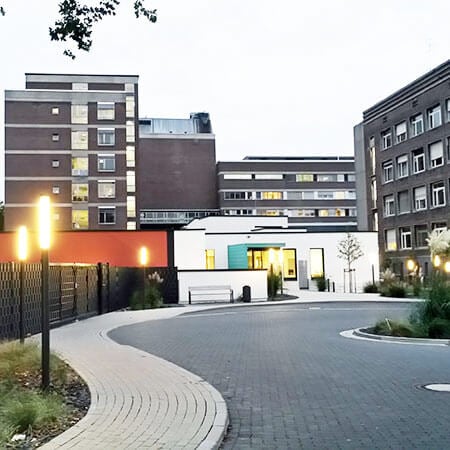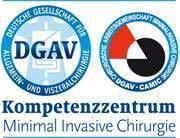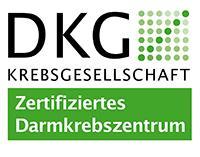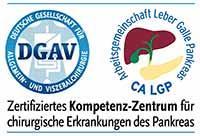Rectal Cancer — Da Vinci treatment in the Best Hospitals in the World
Treatment prices are regulated by national law of the corresponding countries, but can also include additional hospital coefficients. In order to receive the individual cost calculation, please send us the request and medical records.

Department of General and Abdominal Surgery, Colorectal Surgery, Endocrine Surgery and Hernia Surgery
The Department of General and Abdominal Surgery, Colorectal Surgery, Endocrine Surgery and Hernia Surgery offers the full range of modern surgical interventions in the areas of its specialization. Every year, the medical facility performs more than 2,500 surgical interventions on an inpatient and outpatient basis. The department has vast clinical experience in the field of minimally invasive surgery, which allows the patient to avoid severe pain and prolonged hospitalization. In addition, the department offers robotic surgery using the most modern models of the da Vinci surgical system. The medical facility has the status of the Reference Center for Minimally Invasive Surgery and Hernia Surgery. Surgical treatment of cancer is one of the department's clinical priority focuses. A large number of da Vinci robot-assisted interventions are performed here for gastrointestinal cancers. The department holds a leading position in the use of the da Vinci surgical system in the treatment of rectal and sigmoid cancer patients. The operating rooms of the medical facility are equipped with the very latest technology, while hygiene and safety standards are at the highest level as well. Prior to surgery, the patient undergoes a comprehensive examination. Doctors also assess the risks of the upcoming operation and its expected results. With appropriate clinical indications, preference is always given to minimally invasive surgery.







Department of General, Abdominal, Transplant, Hepatopancreatobiliary, Colorectal, Endocrine, Bariatric Surgery and Hernia Surgery
The Department of General, Abdominal, Transplant, Hepatopancreatobiliary, Colorectal, Endocrine, Bariatric Surgery and Hernia Surgery provides the full range of services in the areas of its specialization and holds a leading position at the national and international levels in terms of the number of surgical interventions performed and their success. Of particular interest are operations for treating diseases of the bowel, stomach, esophagus, pancreas, liver, gallbladder, and bile ducts, and endocrine glands. The department's doctors have excellent skills in the surgical treatment of cancer, surgery for liver, kidney, pancreas, and small intestine transplants, and operations for morbid obesity. The department's operating rooms are the pride of the medical facility, since they have all the necessary technical options for performing operations with the da Vinci surgical system, image-guided interventions, and endoscopic surgical procedures, which are characterized by minimal trauma rates.







Department of General and Abdominal Surgery, Hepatopancreatobiliary Surgery, Colorectal Surgery, Hernia Surgery
According to the Focus magazine, the Department of General and Abdominal Surgery, Hepatopancreatobiliary Surgery, Colorectal Surgery, Hernia Surgery is one of the best medical facilities in Germany for the treatment of colon, stomach, esophageal, pancreatic, and liver cancers! The main specialization is surgical procedures for malignancies in the intestines, stomach, esophagus, liver, pancreas, and rectum. The department also successfully operates on patients with chronic inflammatory bowel disease such as Crohn's disease and ulcerative colitis. The department's therapeutic capabilities are complemented by the treatment of gastroesophageal reflux disease, sigmoid diverticulum, umbilical and inguinal hernias, cholelithiasis, and anorectal disorders. Nearly all surgical procedures are performed using minimally invasive surgical techniques – the department has the status of a Center of Excellence for Minimally Invasive Surgery certified by the German Society for General and Vascular Surgery (DGAV). The medical facility also offers innovative da Vinci robot-assisted surgery. These procedures have become the standard of care for colon cancer, rectal cancer, and colonic diverticulosis. Each clinical case is evaluated individually and the surgical procedure is carefully planned. Surgeries are performed in high-tech operating rooms in compliance with hygiene and safety standards.






Rectal cancer is one of the most common oncological diseases. In standard cases, the tumor is removed by open surgery. However, doctors abroad increasingly prefer minimally invasive techniques such as laparoscopy and robot-assisted surgery. Treatment outcomes with a minimally invasive technique are no worse than those of classic abdominal surgery. Moreover, the risk of complications is lower and the recovery of patients is easier and faster. The cost of da Vinci surgery for rectal cancer ranges between 19,700 EUR and 39,100 EUR.
Content
- Principles of rectal cancer treatment
- Specificities of robot-assisted rectal surgery
- Benefits of robot-assisted surgery
All manipulations are carried out by the arms of a robot-assisted surgical system: they make incisions, hold instruments, and a tiny video camera with lighting. A doctor controls the robot remotely using a console.
You can seek medical attention from one of the following hospitals: University Hospital of Ludwig Maximilian University of Munich, Charite University Hospital Berlin, or University Hospital RWTH Aachen.
We will take care of all the arrangements for your trip if you make your treatment appointment through the Booking Health service. The Booking Health team will help you to select a hospital and a doctor, take care of applying for a visa and a flight to the hospital, agree on an appointment with a doctor in the near future, control the cost of medical services rendered, arrange insurance, and provide interpreting services. You are welcome to contact Booking Health with any questions regarding your treatment abroad.
Principles of rectal cancer treatment
Rectal cancer is usually treated with surgery. The operation is performed immediately after the establishment of the diagnosis or after chemotherapy if the diagnosis is made at an advanced stage.
Doctors abroad use many effective treatment methods, including surgical transanal excision of the tumor, radiation and chemotherapy, and embolization or chemoembolization to suppress liver metastases. When there is a significant spread of the tumor process in the abdominal cavity, doctors perform cytoreductive surgery with hyperthermic intraperitoneal chemoperfusion (CRS and HIPEC). Surgeons remove all tumor foci, and then rinse the abdominal cavity with a heated solution of cytostatics to destroy the remaining cancer cells. The advanced stages are treated with palliative care, including endoscopic dilation in stenosis.
If cancer is detected at the early stages, doctors can remove the tumor in many patients with a minimally invasive laparoscopic technique. Doctors at clinics abroad increasingly prefer this surgical option since it is less traumatic. In addition, in the world's leading clinics, even laparoscopy is gradually becoming an outdated technique, as even more advanced robot-assisted operations have appeared.
Specificities of robot-assisted rectal surgery
Minimally invasive surgery for rectal cancer remains a challenge for physicians due to the peculiarities of the topographic location of the organ and problems with rectal mobilization. The problem is exacerbated by the narrow pelvis in men and the presence of obesity. It is therefore important to be treated by highly professional surgeons to expect good oncological results and, at the same time, avoid complications.
The use of new technologies that help doctors to improve treatment outcomes is equally important. Surgeons in developed countries use the da Vinci surgical system. This device performs the operation with "robotic arms", and a doctor controls the system remotely with a console. The Da Vinci treatment makes it possible to overcome most of the indicated complexities due to the excellent overview of the surgical field and the very high manipulativeness of the instruments.
Robot-assisted surgery is performed in the same way as laparoscopic surgery, that is, through short incisions. However, it has a number of advantages. When performing laparoscopy, a doctor can see the surgical field on the screen in two-dimensional mode, while robotic surgery creates a 3D image. The 3D camera system creates stable images. Robotic arms never tremble, thereby performing movements as accurately as possible.
Benefits of robot-assisted surgery
Robot-assisted surgery is safer, which is confirmed by studies.
A recent analysis showed that when using a robot-assisted surgical system, the risk of converting a minimally invasive operation to an open one is reduced from 13% to 5%. Moreover, many studies showed that the conversion rate was zero. This is due to the fact that during a robot-assisted operation, obesity, a narrow pelvis, adhesive disease, bleeding or intestinal expansion no longer interfere with a minimally invasive intervention.
When performing a robot-assisted operation, its duration is reduced by an average of 42 minutes. The faster the operation is completed, the lower the risk that a person will suffer from complications. In addition, a patient feels better in the postoperative period.
In many patients, robot-assisted surgery is almost bloodless due to the instant coagulation of blood vessels in the incision area. Studies show that blood loss ranges from 16 to 400 mL. Even at the maximum rate, patients do not need any blood transfusions.
Robot-assisted surgery has a lower complication rate. For example, the incidence of the most common complication of colorectal resection, namely anastomotic leaks, is 5%, while for laparoscopic surgery this figure reaches 7%.
General rehabilitation after robot-assisted surgery is faster and a hospital stay is shorter. Intestinal peristalsis is restored on average 2 days earlier than after a laparoscopic intervention. Sexual function and bladder control are restored earlier as well.
You are welcome to use the Booking Health service to undergo your colon cancer diagnostics and surgical treatment, postoperative colostomy closure and other interventions at one of the hospitals abroad. On our website, you can find prices, compare the cost of operations at different medical centers, and make your appointment on the preferred dates. Our specialists will advise on all issues and help with selecting a hospital and organizing a trip.
Authors:
The article was edited by medical experts, board-certified doctors Dr. Nadezhda Ivanisova and Dr. Vadim Zhiliuk. For the treatment of the conditions referred to in the article, you must consult a doctor; the information in the article is not intended for self-medication!
Sources:

